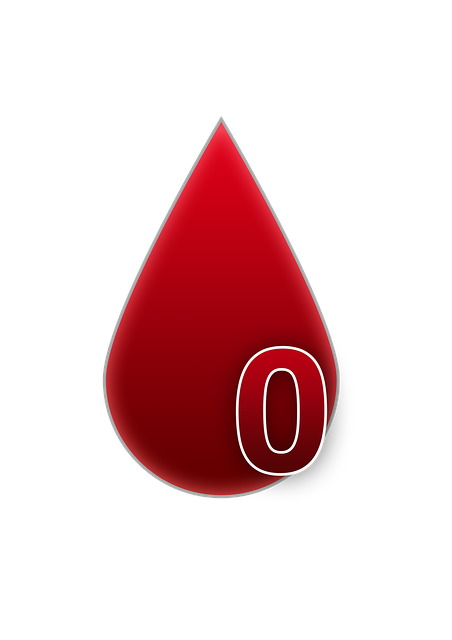Same-sex male couples utilizing egg donors for family building undergo a rigorous process involving sperm and egg selection, in vitro fertilization via ICSI, embryo culture with genetic testing (PGD), and strict compatibility criteria. Ethical considerations include consent, identity formation, child development, legal complexities, and social acceptance, requiring transparent practices, informed consent, robust support networks, and expert guidance to navigate these challenges successfully.
Embryo creation and genetic matching are revolutionary processes shaping the future of family planning, especially for same-sex male couples. This article delves into the intricate details behind these procedures, from the technical aspects of embryo creation to the ethical considerations surrounding egg donors in LGBTQ+ families. We explore how advanced technologies ensure compatibility and compatibility testing, while navigating legal and social landscapes related to embryo adoption. Understanding these topics is crucial for both prospective parents and society at large.
The Process of Embryo Creation: A Comprehensive Overview
The process of embryo creation involves several meticulous steps designed to achieve successful pregnancy in various fertility scenarios, including for same-sex male couples considering egg donor options. It begins with the careful selection and preparation of both sperm and eggs. In the case of same-sex males, an egg donor is chosen, her eggs are harvested, and then fertilized in vitro using the partner’s sperm through intracytoplasmic sperm injection (ICSI). This involves injecting a single sperm directly into an egg to initiate fertilization. The resulting embryos are then cultured for several days as they develop from a single cell to a cluster of cells capable of implantation.
Quality control measures, including genetic testing, are crucial during this stage. Genetic matching is achieved through pre-implantation genetic diagnosis (PGD), where specific genetic markers are analyzed to ensure the health and compatibility of the embryo. This process identifies any potential genetic disorders or anomalies, allowing only the healthiest embryos to be selected for transfer into the recipient’s uterus, thereby maximizing the chances of successful pregnancy and a healthy outcome.
Genetic Matching: Ensuring Compatibility for Future Families
In the context of building families, genetic matching plays a pivotal role in ensuring compatibility and health for future generations. For same-sex male couples considering parenthood through an egg donor, this process is particularly crucial. Genetic screening and matching involve rigorous tests to select donors whose genetic makeup aligns closely with that of the intended parents, reducing the risk of inherited disorders. This meticulous approach guarantees that the children born from these donations have a lower likelihood of facing genetic health issues.
The compatibility criteria extend beyond genes, factoring in blood type, immune system markers, and other hereditary traits. By carefully matching these aspects, doctors can create embryos with a higher chance of successful implantation and healthy development. This meticulous process not only maximizes the chances of a successful pregnancy but also fosters a sense of reassurance among future parents, enabling them to focus on welcoming a new life into their family.
Egg Donor Role in Same-Sex Male Couples: An Ethical Perspective
In the context of same-sex male couples, the role of an egg donor is a complex and sensitive issue with profound ethical implications. Traditionally, conception methods for gay males have relied on sperm donors, but advances in reproductive technology now offer alternative routes to parenthood, such as using an egg donor. This shift raises important questions about consent, identity, and the impact on future children.
From an ethical standpoint, the choice of an egg donor for same-sex male couples deserves careful consideration. It involves navigating issues of autonomy, potential psychological impacts on the child, and the broader social narrative surrounding family structures. Ensuring transparency, informed consent from all parties involved, and comprehensive support systems are crucial to addressing these ethical concerns and fostering healthy relationships within families formed through alternative reproduction methods.
Navigating Legal and Social Considerations for Embryo Adoption
Embryo adoption, especially for same-sex male couples considering building their families, involves a complex interplay of legal and social considerations. Navigating this process requires careful attention to ensure ethical practices and respect for all parties involved. One key aspect is understanding the role of an egg donor, who can be a significant contributor in creating embryos suitable for adoption.
For same-sex male couples, choosing an egg donor who aligns with their values and preferences is essential. This includes considering legal aspects such as consent, confidentiality, and parental rights. Social acceptance and support from medical professionals are also crucial factors. Proper guidance from experts in fertility and adoption law can help couples make informed decisions, ensuring a smooth journey towards parenthood while adhering to ethical standards.
Embryo creation and genetic matching offer hope and possibilities for many aspiring parents, especially same-sex male couples. By understanding the intricate processes involved, from embryo creation to legal adoption, these families can navigate their journey with knowledge and confidence. Genetic matching ensures compatibility and potential success, while exploring ethical considerations surrounding egg donors empowers informed decision-making. With proper guidance and support, same-sex male couples can successfully build families through embryo adoption, fostering a vibrant tapestry of modern family structures.
